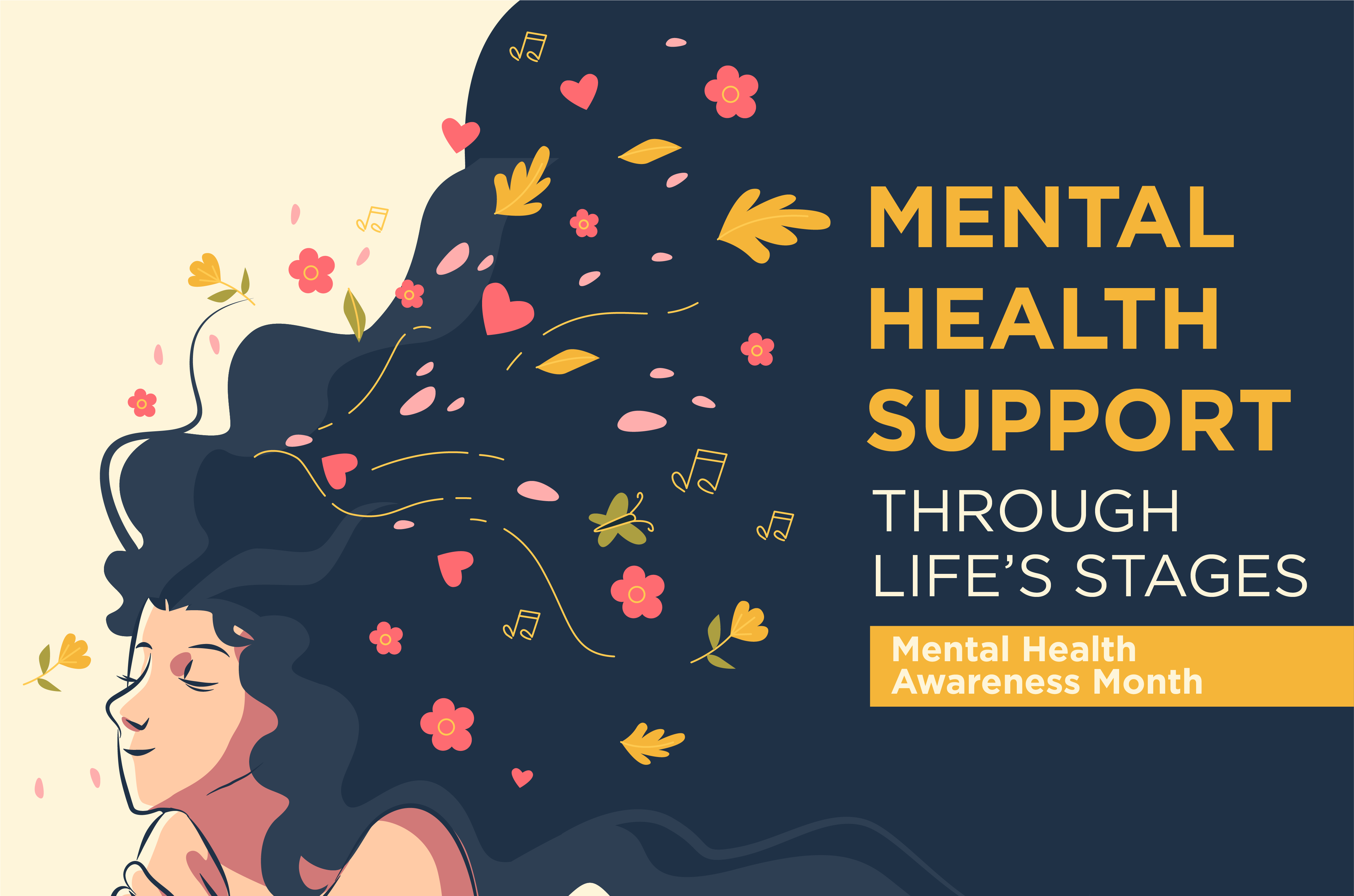May is just a couple of days away and we’ll be recognizing Mental Health Awareness Month! Mental health is a crucial part of overall well-being, and its needs shift and change as we navigate life’s different stages. From the social anxieties of adolescence to the pressures of parenthood, each phase presents its own set of challenges. But the good news is, there are resources and strategies for mental health support through every one of life’s stages.
Teens: Navigating Identity and Change
Adolescence is a whirlwind of emotional and social growth. Teenagers struggle with their self-esteem, peer pressure, and the annoying question, “Who am I?”. Anxiety and depression are widespread among students during this period. But adolescence is also a period of immense growth. Teenagers develop a deeper understanding of their emotions, learning to navigate complex feelings like anger, frustration, and heartbreak. They begin to think critically, questioning the world around them and forming their own beliefs. This newfound independence can be both exhilarating and intimidating.
Resources for Teens:
Open Communication: Teach teens to freely express themselves.
Creative Outlets: Encourage activities such as art, music, or writing for health expression.
Online Resources: Websites such as National Suicide Prevention Lifeline – https://988lifeline.org/ – provide peer support and crisis hotlines.
Young Adults: Launching into Independence
Young adulthood brings exciting possibilities but also significant stressors. It’s a time of newfound independence, often marked by moving away from home and taking on the responsibilities of cooking, cleaning, and managing finances. Financial anxieties loom large, with entry-level jobs and student loan debt adding pressure. Dating, friendships, and identity formation are all in flux, creating a confusing yet crucial period of self-discovery. Mental and physical health can also be a concern, with chronic conditions potentially emerging.
Resources for Young Adults:
Develop Strong Support Networks: Friends, family, and mentors are a great source of emotional support.
Seek Professional Help: Therapy can provide young adults with strategies for coping with emotions and regulating their feelings.
Financial Planning Resources: Search for budgeting and debt management workshops or online guidance.
Parents: The Joys and Juggling Act
Parenthood is both rewarding and challenging and can bring immense joy and fulfillment as well as significant challenges. While the rewards of raising children are undeniable, the constant juggling act of work, childcare, and meeting the emotional needs of children can leave parents feeling overwhelmed and exhausted. The sleep deprivation that often comes with caring for young children can worsen these feelings, making it difficult to focus on daily tasks and maintain emotional resilience.
On top of these challenges, postpartum depression and anxiety are frequent concerns for new parents. These conditions can make it difficult to bond with your baby and cope with the demands of parenthood. If you are a parent struggling with your mental health, it is important to remember that you are not alone.
Resources for Parents:
Build a Support System: Rely on your partners, family, and friends for help and emotional support.
Practice Self-Compassion: Keep in mind that no parent is perfect.
Seek Professional Help if Needed: Therapy can help with handling stress and anxiety.
Online Communities: Support groups or forums connect parents with others who are fighting similar battles.
Remember, mental health is something we need to care for throughout our lives. There will always be ups and downs, but by being aware of our mental health and taking steps to support it, we can live happy and healthy lives. If you think you may need professional help with your mental health, visit your primary care physician or find one at Comanche County Memorial Hospital.
Resources:
Disclaimer:
The Comanche County Memorial Hospital website does not provide specific medical advice for individual cases. Comanche County Memorial Hospital does not endorse any services obtained through information provided on this site, articles on the site or any links on this site.
Use of the information obtained by the Comanche County Memorial Hospital website does not replace medical advice given by a qualified medical provider to meet the medical needs of our readers or others.
While content is frequently updated, medical information changes quickly. Information may be out of date, and/or contain inaccuracies or typographical errors. For questions or concerns, please contact us at contact@ccmhhealth.com.

